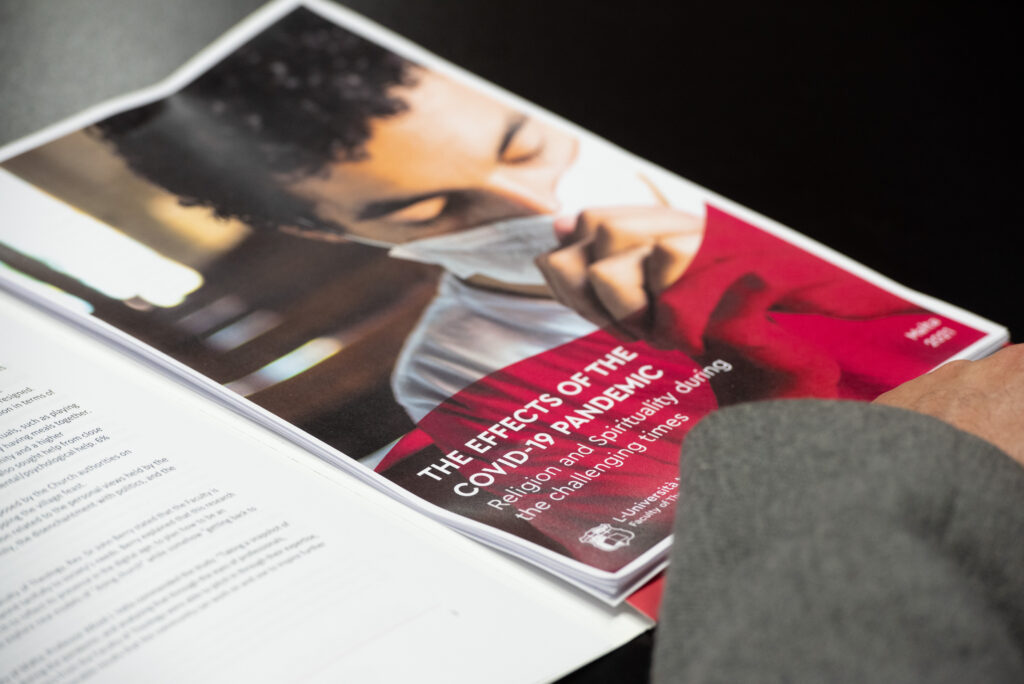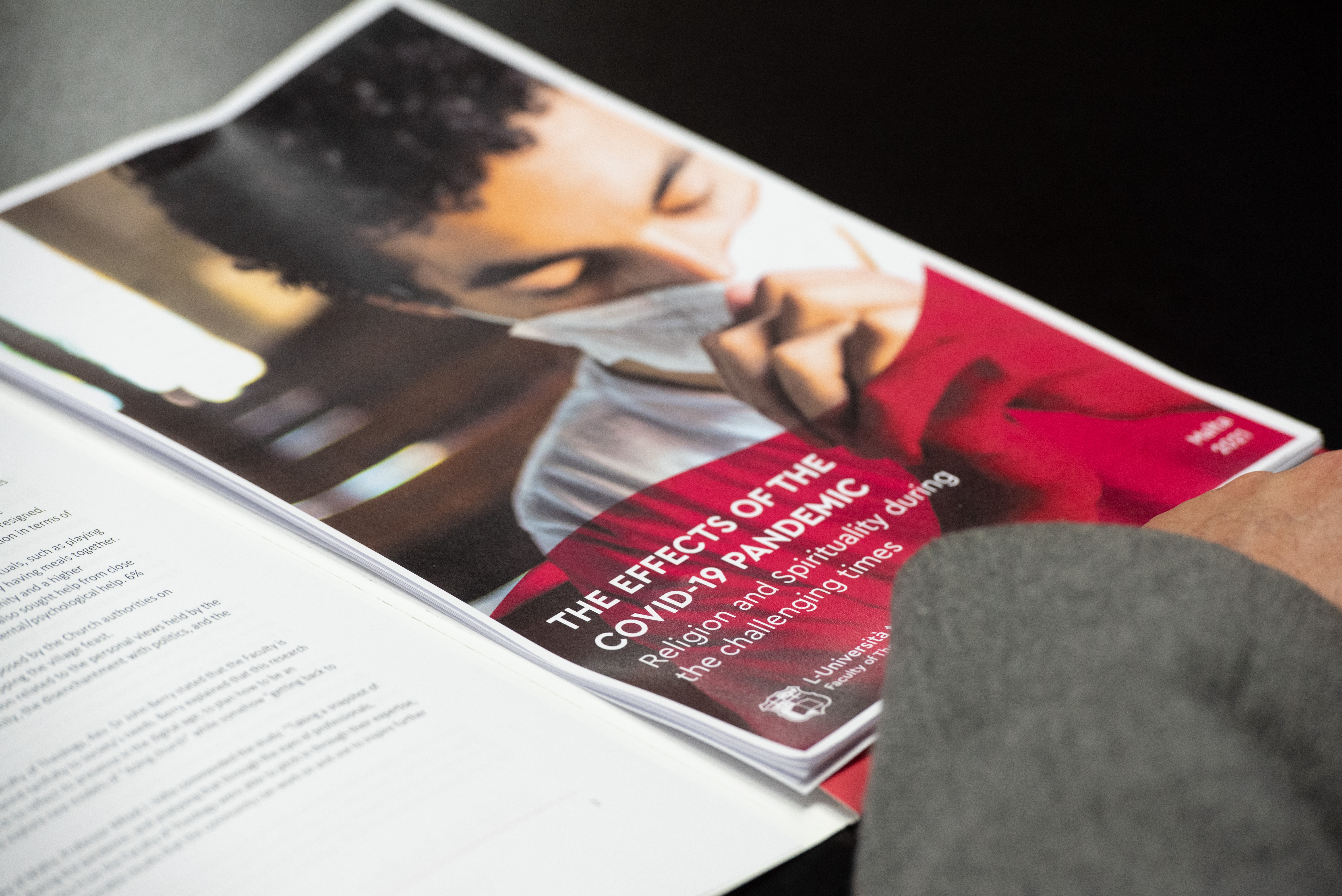
A study conducted by the University of Malta’s Faculty of Theology found that more Maltese people are open to online methods of worship since the pandemic broke in 2020, but they still believe that public worship together is important. They missed going to Church, especially receiving the Eucharist. The majority of participants stated that their faith helped them go through the pandemic experience.
The survey, which was spearheaded by members of the Department of Pastoral Theology, Liturgy and Canon Law, set out to understand some of the effects of the Covid-19 pandemic on the life, faith and meaning of the people living in Malta. It was conducted through an online anonymous survey and had a total of 1,102 responses, 711 of which were females and 385 of which were males. 88% of these participants declared to be Roman Catholic, while 11% claimed to embrace no religion at all.
Rev. Professor Paul Galea, one of the authors of the study, called the study a lens into how the local community behaved and coped with an unprecedented situation, and a great opportunity to plan a better offering of spiritual care in a future distressful situation. “Some of us struggled more than others, some of us found it easier to cope than others. It is our duty to understand what role religion and spirituality has had during the pandemic and whether this experience has brought a significant growth when it comes to facing existential issues,” he continued.

Professor Adrian-Mario Gellel observed that the data at hand confirms the secularisation divide between the younger generation, those under the age of 30, and the rest of the population. This has impacted on the way the young have related to religion and God during the pandemic as well as the way they have tried to cope. They seem, however to be searching for new ways of connecting with their spirituality.
On her part, Professor Nadia Delicata, episcopal delegate for evangelisation and member of the Faculty of Theology whose main area of research is Christianity in digital culture, remarked that it is a sign of hope that local Catholics grasp how “worship”, and the sacraments specifically, demand the fullness of communal presence. Nonetheless, as the Archdiocese’s own pastoral plan promulgated during the pandemic stresses, the Church has a duty to encourage meaningful encounter in all spaces, including augmented digital spaces.

Other interesting findings emerged from the study, such as:
- Religiosity increased with the onset of the pandemic, with no respondents claiming an apocalyptic, end of world interpretation of it.
- The majority of those above the age of 30 found prayer as a source of consolation. They do not think that churches and public worship have become superfluous and continue to see churches linked to their religious identity.
- Despite raising a fair amount of anxiety and distress the pandemic did not seem to have triggered serious religious struggles. The majority actually felt thankful, hopeful and resigned.
- The younger generation (under the age of 30) differs from the rest of the population in terms of religiosity.
- Spending longer time at home lead to the (re)discovery of family life and rituals, such as playing games and watching TV together, and maybe most importantly, to enjoy having meals together.
- The majority of respondents missed people from the Church community and a higher percentage sought forms of connection with others. Participants also sought help from close family members, other relatives and friends. 42% said it was mental/psychological help. 6% needed food and 3% sought financial help.
- An overwhelming majority approved the restrictions imposed by the Church authorities on religious gatherings and almost 89% did not mind skipping the village feast.
- The study also revealed other important information related to the personal views held by the participants, such as, the importance of the family, the disenchantment with politics, and the importance of being of service to others.
In view of these findings, the Dean of the Faculty of Theology, Rev. Dr John Berry stated that the Faculty is committed to seek new ways how to respond tactfully to society’s needs. Berry explained that this research evidenced that people want the Church to reflect its presence in the digital age; to plan how to be an inclusive church community and to explore new models of “doing church” while somehow “getting back to normal.”.
The Rector of the University of Malta, Professor Alfred J. Vella commended the study. “Taking a snapshot of the challenges experienced during the pandemic, and analysing that through the eyes of professionals, which is something the academics from the Faculty of Theology were able to pitch in through their expertise, makes sure to provide us with actionable results that the community can work on and use to inspire further research”, he said.
The full study can be accessed online.






